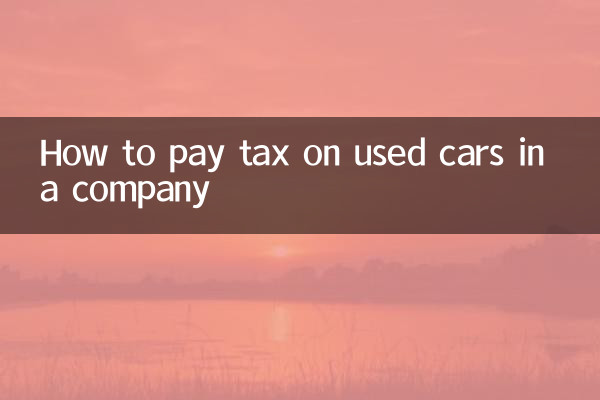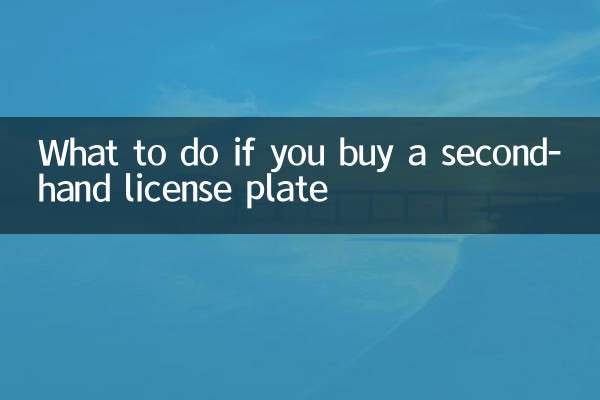How to pay tax on used cars in a company
In recent years, the used car trading market has continued to heat up, and more and more companies have begun to sell idle vehicles to revitalize their assets. For companies, the tax issues involved in selling used cars are relatively complex, and taxes and fees need to be calculated comprehensively based on factors such as vehicle use, purchase time, and sales price. This article will analyze the company's tax processing process for selling used cars in detail and provide structured data for reference.
1. Taxes involved in the company selling used cars

The company's sales of used cars mainly involveVAT,Corporate Income TaxandStamp dutyThe three types of taxes are calculated as follows:
| Tax types | Tax calculation basis | tax rate | Remark |
|---|---|---|---|
| VAT | Sales - original purchase price | 13% or 3% off by 2% | General taxpayers are 13%, small-scale taxpayers are 3% reduced by 2% |
| Corporate Income Tax | Proceeds of transfer | 25% (basic tax rate) | Need to be included in the annual profit calculation of the company |
| Stamp duty | Contract amount | 0.05% | The buyer and seller each bear 50% |
2. Tax handling in different situations
1.General taxpayers sell used cars
If the enterprise is a general VAT taxpayer, there are two situations to sell used cars:
2.Small-scale taxpayer selling used cars
Small-scale taxpayers who sell their used fixed assets can enjoy the preferential policy of 3% levy rate minus 2%.
| Taxpayer type | Vehicle use | VAT calculation method |
|---|---|---|
| General taxpayer | Self-use fixed assets | (Selling price - original value) × 13% |
| General taxpayer | Non-self-use vehicles | Price × 13% |
| Small-scale taxpayer | Self-use fixed assets | Price × 2% |
3. Specific case analysis
Case: A company (general taxpayer) purchased a official vehicle in 2019, with an original value of 200,000 yuan and sold for 150,000 yuan in 2023.
| project | Calculation process | Amount (10,000 yuan) |
|---|---|---|
| VAT | (15-20)×13% | 0 (No loss payment) |
| Corporate Income Tax | (15-20)×25% | 0 (No loss payment) |
| Stamp duty | 15×0.05% | 0.0075 |
4. Things to note
1.Invoice issuance: When selling used cars, a company requires a special value-added tax invoice or ordinary invoice. General taxpayers can issue it themselves. Small-scale taxpayers need to go to the tax authority to issue it.
2.Information preparation: Original vouchers such as vehicle registration certificate, purchase invoice, and sales contract are required.
3.Application process: Value-added tax must be declared in the period, and corporate income tax shall be processed during the annual reconciliation and settlement.
4.Tax benefits: Some regions have tax preferential policies for used car transactions, and it is recommended to consult the local tax authorities in advance.
5. Hot Spot Extension
Recently, new trends have emerged in the second-hand car market: the transaction volume of new energy used cars has increased by 45% year-on-year, and models such as Tesla Model 3 have become popular trading targets. Enterprises who sell new energy used cars can enjoy the policy of immediately collecting and refunding VAT, with the specific tax refund ratio ranging from 50% to 100%.
Through the above analysis, it can be seen that the tax treatment of companies selling used cars needs to be adopted different methods according to the specific circumstances. It is recommended that enterprises make good tax planning before transactions, consult professional tax consultants if necessary to ensure compliance operations and reduce tax costs.

check the details

check the details